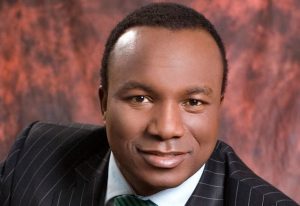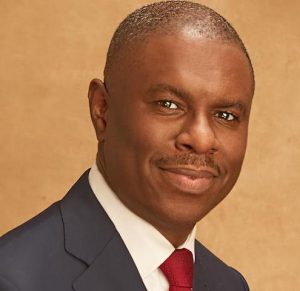Light filters, foosball and a barber shop: How the USMNT is living in Qatar


There was an unshakable perception about two recent United States men’s soccer head coaches, and both of them came with a slight dose of exaggeration.
Bob Bradley, it was said, had a school principal’s approach to discipline, which is why he sequestered his squad at a remote South African farm for the 2010 World Cup, complete with stone walls and barbed wire.
Bruce Arena, so the tale goes, believed players were best left to their own devices during downtime, which is why it was possible to see American squad members strolling the streets of German city centers during the 2006 tournament, enjoying dinners with curfew usually operating as a suggestion rather than an iron-clad deadline.
So what about current USA men’s chief Gregg Berhalter, the man who must not only coax optimum performance from his group over the coming weeks but also manage their mentality and comfort levels during the biggest event of their lives?
“Gregg is a mix of Bruce and Bob,” FOX soccer analyst Alexi Lalas told me. “But there is a twist.”
[How the USMNT restored its culture]
The twist is that while Berhalter falls somewhere between Arena and Bradley on the strictness-meter, he implements a far greater level of detail than either. Part of that is because the past decade and more has seen unprecedented developments in the science of how to best prepare athletes for elite competition.
Not that Berhalter, 49, was ever skeptical of such methods, but now he has truly seen the light. So have his players, not that they necessarily know about it.
At the USMNT’s Qatar headquarters of the Marsa Malaz Kempinski resort, US Soccer came to the hotel staff with a series of cooperative requests aimed at increasing the wellness and preparedness of the team, which will begin its campaign against Wales at Ahmad bin Ali Stadium next Monday (2 p.m. ET on FOX and FOX Sports App).
One of the more ingenious parts to the prep involves intrinsically planned adjustments in the light filters at the common areas of the hotel, depending on the time of day. This, said Lalas, who was given behind-the-scenes info by US Soccer officials, is to help the players quickly regulate their sleep patterns and enhance their adjustment to the Qatari climate and conditions.
(According to FOX Sports soccer writer Doug McIntyre, team officials haven’t told the players about the changes, so if you’re reading this guys, you’re welcome.)
FIFA World Cup: What is the USMNT’s best case scenario?
Alexi Lalas, Stu Holden and David Mosse discuss the best case scenario for the United States Men’s National Team at the 2022 FIFA Men’s World Cup. How far can they go? What players will stand out and more!
Furthermore, US Soccer spokesperson Neil Buethe told me, extra attention has been given to managing the squad’s hours away from training and competing. Even though this World Cup is being played over a tighter window due to its November/December calendar position, Qatar’s small size compared to previous hosts means there will be no long-haul flights or road trips.
In Brazil in 2014, Jurgen Klinsmann’s Americans had a three-hour flight from their base in São Paulo to the northern city of Natal for their opening game against Ghana. Next up was an even longer trek, to the Amazonian city of Manaus, a plane trip spanning four hours.
“Those things, not just the plane rides but getting to the airports and adjusting to the new environment, took up a lot of time,” Buethe said. “That’s removed this time.”
So, Berhalter has tried to make sure his players have enough to do, leading US Soccer to arrange for an extensive players’ lounge to be created in their hotel, a calm space for entertainment, relaxation and killing some of the dead hours between games and practices. Among other amenities within the massive space, it features an enormous TV, plush couches, snack station and a putting green, along with foosball, ping-pong and pool tables. It even has a barber’s chair. The hotel has made it clear that any other modifications the team requests, it will strive to fulfill.
“We went to a lot of lengths to make it accommodating, to create the type of environment that the players are used to,” Berhalter told McIntyre. “We want to be here for a long time, so we want to get comfortable.”
The Kempinski is on the Pearl, a man-made island just off Doha’s coastline, an enclave that boasts a large array of restaurants and entertainment options. Realistically though, modern players are often happiest occupying themselves with a streaming service or their phone during free time.
“It can look like micromanaging but this is a generation that has resources we’ve never had before,” Lalas said of the lighting arrangements. “They’ve been groomed from a young age to be professionals. Berhalter is dealing with a type of player and a mentality very different to the last two World Cup squads.
“Look, if you are a problem, you are a problem in any generation. But these players have had a unique upbringing in warm, comforting and supportive environments. Their level of professionalism was established at a much younger age. These guys understand that the other 22.5 hours in the day are just as important as the 90 minutes you spend out there playing.”
Interestingly, the USA’s first opponent – Wales – has opted for an experience markedly different from its usual preference. Wales coach Robert Page has stationed his team at Delta Hotels, in Doha’s busy West Bay region.
This came as a surprise to many Welsh soccer followers, given that the squad always chooses to encamp at the Vale of Glamorgan, a remote luxury golf resort in the countryside outside Cardiff, for home internationals. However, there will be a newly-acquired golf simulator installed for them in Doha, a gesture of appreciation for captain Gareth Bale, an avowed golf fanatic.
In Qatar, Germany will have the most secluded base of all, at a wellness resort on the far northern tip of the Qatari peninsula, a 90-minute drive from central Doha.
There are numerous ways to go about a campaign, as evidenced by the varied U.S. approaches of Arena and Bradley. For what it’s worth, Bradley once told me in conversation that keeping his squad together in relative isolation in 2010 had a hugely positive effect on team spirit, and that the bus trips to games – complete with singing sessions featuring bawdy adjusted lyrics – are still some favorite memories of his career.
For all the agonizing over the correct method, all the pre-planning and expense, the cruel reality remains that any approach can be the right one.
If – and only if – it works.
Read more:

Get more from FIFA World Cup 2022 Follow your favorites to get information about games, news and more








